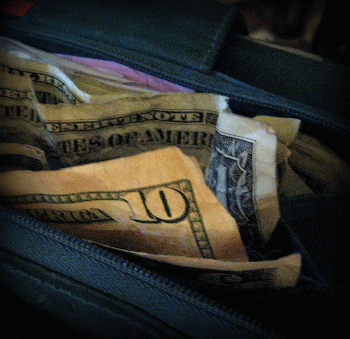National and global debt levels are unsustainably high. We need a "reset," but of what sort? The "Great Reset" of the World Economic Forum (WEF) would leave the people as non-owner tenants in a feudalistic technocracy. The reset of the Eurasian Economic Union would allow participating nations to opt out of the Western capitalist system altogether, but what of the Western countries that are left? That is the question addressed here.
Our Forefathers Had Some Innovative Solutions
Fortunately for the United States, our national debt is in U.S. dollars. As former Federal Reserve Chairman Alan Greenspan once observed, "The United States can pay any debt it has because we can always print money to do that. So there is zero probability of default."
Paying government debt by just printing the money was the innovative solution of the cash-strapped American colonial governments. The problem was that it tended to be inflationary. The paper scrip they issued was considered an advance against future taxes, but it was easier to issue the money than to tax it back, and over-issuing devalued the currency. The colony of Pennsylvania fixed that problem by forming a government-owned "land bank." Money was issued as farm credit that was repaid. The new money went out from the local government and came back to it, stimulating the economy and trade without devaluing the currency.
But in the mid-eighteenth century, at the behest of the Bank of England, the colonies were forbidden by King George to issue their own currencies, triggering a recession and the American Revolution. The colonists won the war, but by the end of it the currency was so devalued (chiefly from British counterfeiting) that the Founding Fathers were afraid to include the power to issue paper money in the Constitution.
Hamilton's Solution: Debt-for-equity Swaps
That left Treasury Secretary Alexander Hamilton in a bind. After the war, the colonies-turned-states were heavily in debt, with no way to repay it. Hamilton solved the problem by turning the states' debts into equity in the First United States Bank. The creditors became shareholders in the bank, earning a 6% dividend on their holdings.
Might that work today? H.R. 3339, a bill currently before Congress, would form a National Infrastructure Bank (NIB) modeled on Hamilton's U.S. Bank, capitalized with federal securities acquired in debt-for-equity swaps. Shareholders would receive a guaranteed 2% dividend on non-voting preferred stock in the bank, with the option of recovering the principal after 20 years.
If the whole $30 trillion U.S. federal debt were turned into bank capital, leveraged into loans at 10 to 1 as banks are allowed to do, the bank could do $300 trillion in infrastructure loans. To start, the Federal Reserve could buy NIB stock with the $5.76 trillion in U.S. Treasury securities currently on its balance sheet, capitalizing potential loans of $57 trillion. The possibilities are breathtaking; and because the money would enter the money supply in the form of low-interest loans to local governments that would be paid back over time, the result need not be inflationary. Loans for infrastructure and other productive ventures would raise supply to meet demand, keeping prices stable.
Lincoln's Solution: Just Issue the Money
Hamilton's solution to an unsustainable federal debt was terminated when President Andrew Jackson closed down the Second U.S. Bank. That left Abraham Lincoln in a bind. Faced with a massive debt at usurious interest rates to fund the Civil War, he solved the problem by reverting to the solution of the American colonists: just issue the currency as paper money.
In the 1860s, these U.S. Notes or Greenbacks constituted 40% of the national currency. Today, 40% of the circulating money supply would be $7.6 trillion. Yet massive Greenback issuance during the Civil War did not lead to hyperinflation. U.S. Notes suffered a drop in value as against gold, but according to Milton Friedman and Anna Schwarz in A Monetary History of the United States, 1867-1960, this was due not to "printing money" but to trade imbalances with foreign trading partners on the gold standard. The Greenbacks aided the Union not only in winning the war but in funding a period of unprecedented economic expansion, making the country the greatest industrial giant the world had yet seen. The steel industry was launched, a continental railroad system was created, a new era of farm machinery and cheap tools was promoted, free higher education was established, government support was provided to all branches of science, the Bureau of Mines was organized, and labor productivity was increased by 50 to 75 percent.
The Japanese "Free Lunch"
Another option is for the U.S. government to "monetize" its debt by having the central bank purchase and hold it or write it off. The Federal Reserve returns interest and profits to the Treasury after deducting its costs.
(Note: You can view every article as one long page if you sign up as an Advocate Member, or higher).






